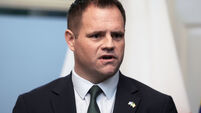Mick Clifford: Concerns over gender service are being ignored

'The HSE is currently advertising for a clinical lead in the National Gender Service but bizarrely prior experience is not a prerequisite.'
One of the most astute, albeit depressing, comments to emerge from the debacle that was the Brexit referendum was delivered by Michael Gove. When it was pointed out to him in the course of the campaign that there was expert evidence that leaving the EU would render the UK worse off, the leading Brexiteer MP replied: “The people of this country have had enough of experts.”
He was shown to be correct. Whether the people of that country in retrospect regret not paying more attention to experts is another matter. Over the last few years, experts in other areas have also been studiously ignored. The most obvious example is climate change where all manner of vested interests insist that the science is wrong. Just close your eyes and believe and the planet won’t burn. It would be nice to think that the sceptics are correct on this one but such wishful thinking is really for the birds.
CLIMATE & SUSTAINABILITY HUB















